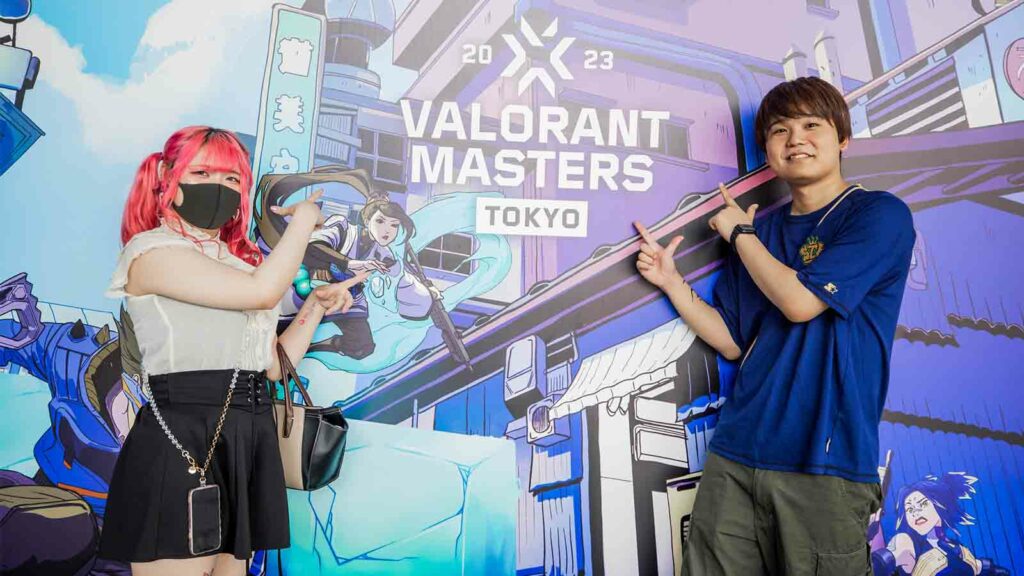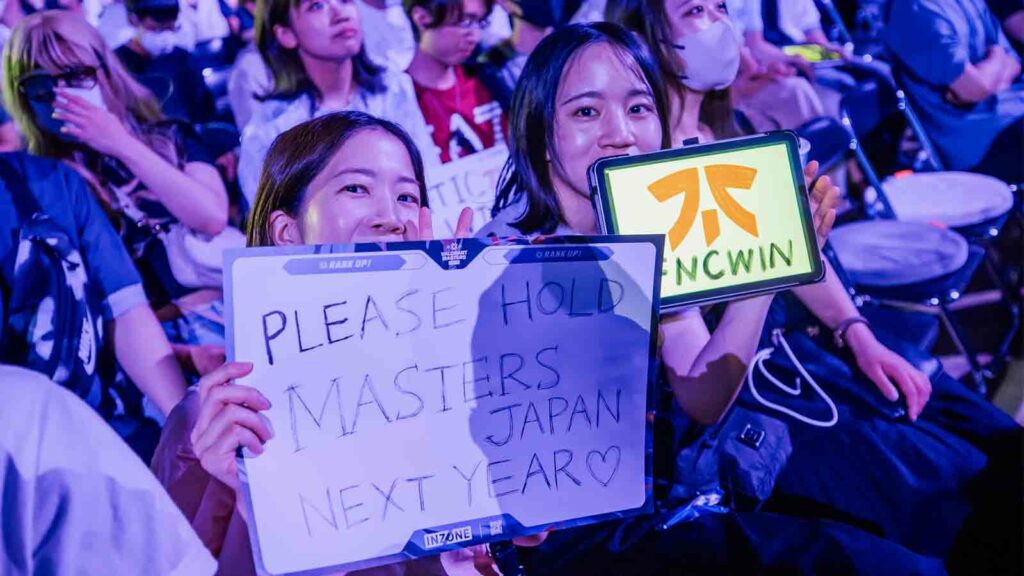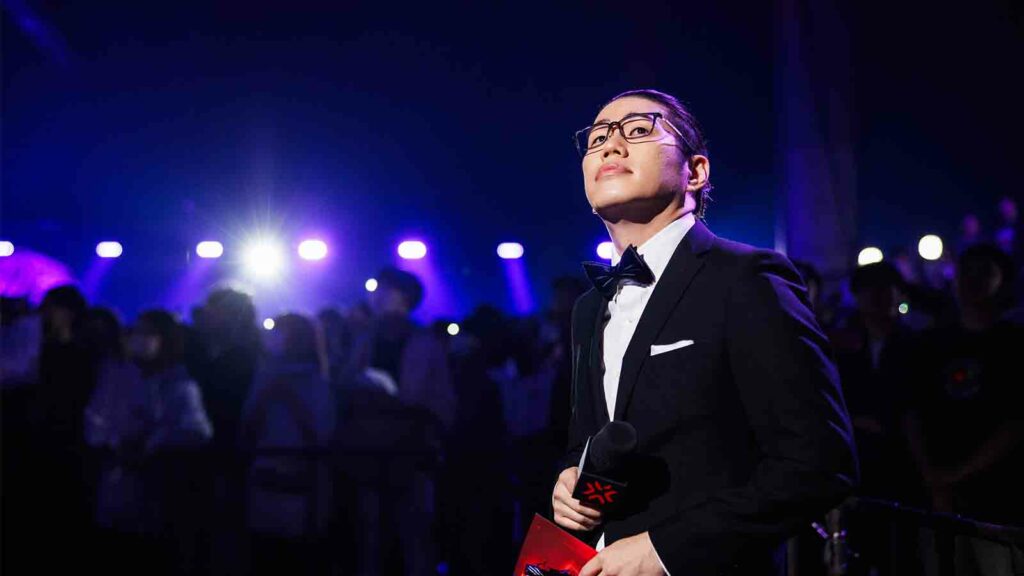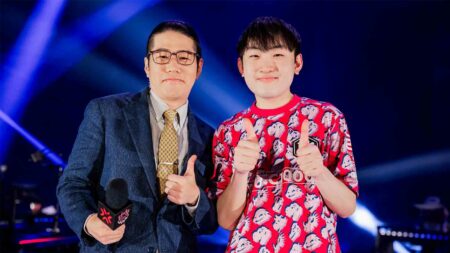No one expected Valorant in Japan to become this big.
For the first time in esports history, the country hosted its first-ever international Valorant tournament, VCT Masters Tokyo, in 2023.
This very same country has been dominated by console gaming for decades, making PC gaming less popular. Yet, since its release in 2020, FPS title Valorant has grown to become so massive that it leads viewership in the franchised Asian Pacific region.
Even the Japan Challengers series — a tournament one level below franchising — gains more viewers than North America. Valorant Challengers 2023 Japan Split 1 averaged 73,114 viewers according to Esports Charts, while Valorant Challengers 2023 North America Split 1 averaged 55,447 viewers. Even when we compare Split 2, Japan averaged 231 more viewers and more than 1.3 million hours watched.
That biggest surprise came during Masters Tokyo itself, where not a single Japanese team had qualified. Despite this, the Tipstar Dome Chiba and Makuhari Messe venues were sold-out and packed.

Veteran Japanese FPS caster Tetsuya “OooDa” Okagami was one of the key talents leading the broadcast during the group stage, playoffs, and finals, who has been involved in Valorant since First Strike in 2020.
In this exclusive interview with ONE Esports, he reflects on Japanese culture and why there’s so much support for Valorant and its esports from local fans.
- Learn how to quick scope from the best pros in this Valorant guide
- Exclusive: Stuck in rank? PRX something has the best advice for you
In order to understand Valorant in Japan, we first need to understand their idol culture
ZETA Division is Japan’s best Valorant team. The organization has competed in tournaments since June 2020 when the game debuted and has dominated the local scene for the longest time.
At the international level, they bowed out early at Masters Berlin in 2021, but made a surprisingly deep run at Masters Reykjavík 2022 the following year. After losing their first upper bracket match to G2 Esports, they upset APAC rivals DRX and Paper Rex 2-1 in the lower bracket.
They were eventually eliminated by OpTic Gaming in the lower bracket final in a sweep, the same team that went on to win the championship.
At the inaugural VCT Pacific 2023, ZETA Division was eager to represent their country at Masters Tokyo, but were already showing signs of struggle during the regular season. They finished fourth with a 5-4 match record, then lost to Team Secret and T1 in the playoffs, which ended their run.

This meant that there would not be a single Japanese player or team present at Masters Tokyo, Japan — and yet, the stadiums were full, which surprised OooDa too.
“I was very scared and anxious at first, but within these two to three years, the efforts of the Riot Games staff and everyone involved in the organization of this event have come to fruition,” he told ONE Esports.
“There’s a culture in Japan where you have all these idols and superstars — and you want to support them,” OooDa continued. “‘Oshi’ is a relatively new word that we use to describe this. That’s the same case for Valorant.”
Supporting talent isn’t unique to esports either. Locals naturally support superstars like Shohei Ohtani in the major baseball league. At the same time, they also recognize each individual for their extraordinary abilities “regardless of gender or nationality.”
He gave the example of Tom Cruise, who is hugely popular in Japan. The Hollywood A-lister broke records and made history in the country because his movie Top Gun: Maverick ran for a full year in Japanese cinemas, earning US$101.5 million, Deadline reported.
So even though all the teams in Valorant Masters were foreign, they had gained the support of Japanese fans who showed up in jerseys, wrote signs, and cheered in every way possible — simply because they are the best pro players in the world who showcased their skills, personality, and flair on stage.

OooDa could not have imagined it would cumulate to scale as big as Masters Tokyo when he first worked on the title three years ago. “I have to give credit to the streamers who broadcast Valorant content. I believe they’re the ones who made the game this huge in Japan,” he said.
A widely-known esports shoutcaster, he too had a part to play in its growth — Japanese fans who watch his cast have gone up to him to thank him because they felt his commentary style made them enjoy Valorant even more.
“What I aim to do is make sure that people who are not familiar with terms and abilities, such as Rolling Thunder, can still understand what’s going on,” said OooDa. “I make sure that in situations where a team eliminates five people for example, they’ll understand that as well.”
He also makes an effort to highlight certain players, using words that would tell their story and capture the hearts of fans. For example at Masters Tokyo, he chose to focus on Paper Rex’s substitute player Patiphan “CigaretteS” Posri so that Japanese fans “will get to know him more.”
On top of that, OooDa breaks conventional Japanese casting standards by bringing an energy level like no other. He agreed that Japanese casters “tend to be strict and by the book,” which is why he took note of Korean casters like Yong “Jeon” Jun.
“I believe gaming is part of the entertainment industry and I need to meet the level of passion with the fans depending on the game title,” he explained. “So for Valorant, it’s at a certain level, and I’m going to meet that same level of passion with the fans.”
During the Masters Tokyo, he stepped up his game during the grand finals walkout, dramatically introducing each player as they entered the arena, where he fulfilled his lifelong dream of hosting and casting an international tournament.
He hopes that the momentum from Masters Tokyo will increase the game’s popularity in Japan. After all, PC gaming has grown since the early 2000s, and OooDa looks forward to the day when PC gaming is as popular in Japan as it was in South Korea, Europe, and America 10 years ago.
“I think it’s going to take quite some time,” he said. “Right now, I’m just thankful for all the people involved for bringing Valorant up to this stage of popularity.”
Follow ONE Esports on Instagram and TikTok for more Valorant exclusives.
READ MORE: Top 10 highest-earning Valorant players list dominated by two teams


